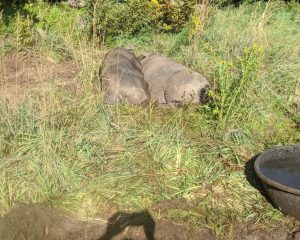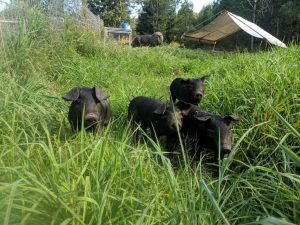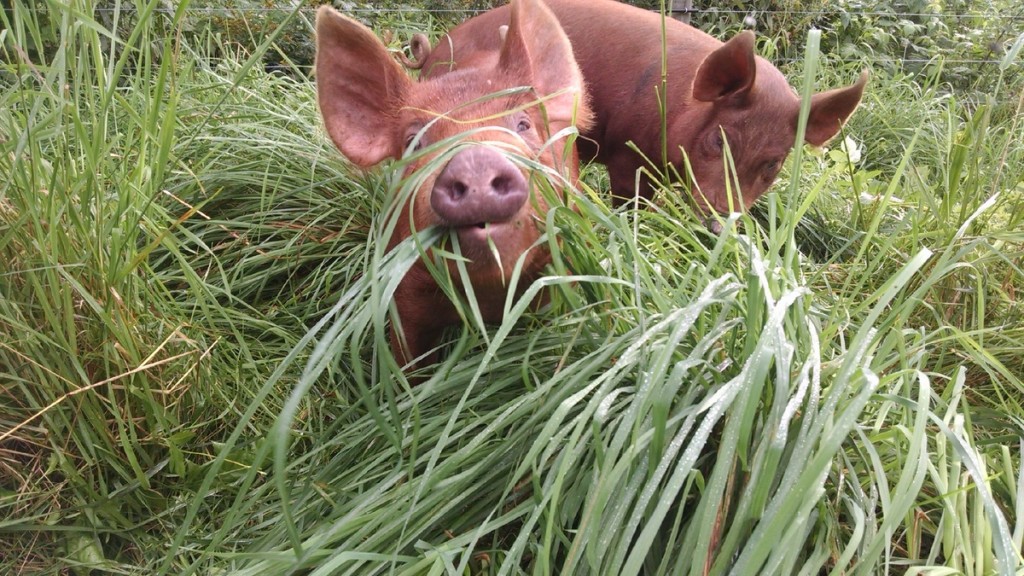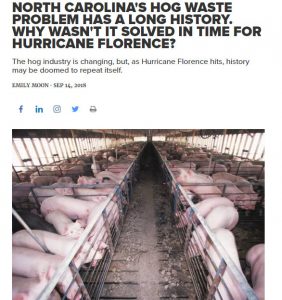I heard the news story noting concerns about the North Carolina pig farms a few days before Florence was scheduled to hit North Carolina. Despite being well informed about water pollution from hog farms (my former housemate worked on Clean Water issues decades ago and shared loads of stories), my first thought was concerns about the safety and welfare of all the pigs in those industrial buildings.
But no, the story was about something much grimmer, the serious worries that the hurricane would cause the manure “lagoons” to overflow and pollute rivers, streams, groundwater and who knows what else. (Here is a good account of the bigger issue, a problem they have faced for decades, and a New Yorker article as well)
What a clear reminder of the difference between industrial agriculture, especially industrial meat production, and sustainable, pasture-based livestock rearing. My heart goes out to all of the communities in the path of these destructive storms. And as if the impacts of the shear volume of water isn’t enough, many have to fear what other pollutants are in those flooding waters.
As I left the NPR radio story behind and headed out to set fence and feed our 5 groups of pigs making their way around our farm, I thought about what would our community and environmental impact be if we were about to get 2 feet of rain.
Certainly, the boars had dug up a bit more of their last space than I anticipated and we’d face some erosion in that spot, especially since it can be a wet spot in Spring melt out and such. But I don’t think that erosion would even make it to the streams in our woods that feed to the Dog River then Winooski. And while I can confirm that pigs do poop a lot more than humans, we have left a substantial forest buffer between the pastures and streams, to ensure no run-off even in a flooding situation.

And we’d face some compaction where each group made mud puddles and pounded their pasture, but nothing with much larger impact. These are just some of the benefits of moving our pigs to fresh pasture every week.


Most often I focus on the joy so evident as they go off to explore their new spot and seek out treasures in the plants and soil and the added nutrients they must be gaining.
Sure, especially with these all too hot days, I feel the physical and time impacts of needing to pick up and set fence and keep our pigs rotating through our pastures, but given the alternative, I have no regrets.

And indeed, this serves as a reminder as to why we are picky about the meat we eat. Sustainitarians, we like to say. We want that meat raised in a way that not only provides healthy meat for us humans, and a humane life for the livestock, but also can sustain all of us environmentally.
May we all not only help folks in the path of these storms recover, but perhaps the news coverage also brings back to light some unsustainable practices that we let continue and perhaps more folks will start to prioritize sustainably raised meat.



